Forum
PyeongChang Peace Forum 2020
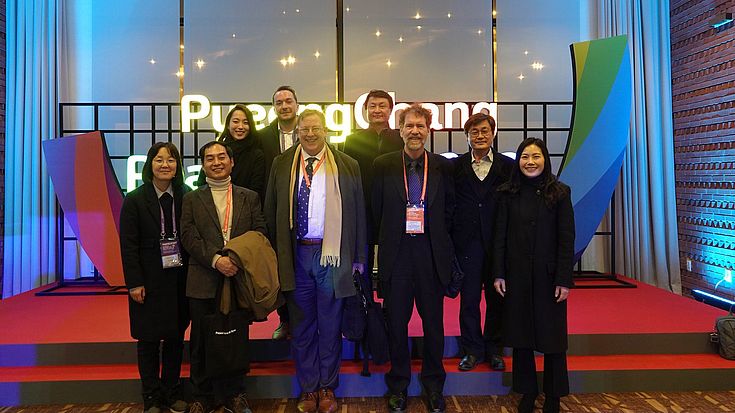
The Korean Peninsula has been in the spotlight of world attention in recent decades for several reasons. Heightened tensions which some claimed to have brought the situation on the brink of war characterized the political situation in 2017. Then, in 2018, the Olympic Games in Pyeongchang saw an initiative for peace and dialogue, with several unprecedented high-level summits and eventually a meeting of US-President Donald Trump, South Korean President Moon Jae-In and North Korean leader Kim Jong-un in the inner-Korean Demilitarized Zone in June 2019. In the light of the heritage of the “Pyeongchang Peace Olympics”, the Pyeongchang Peace Forum 2020 took place from 9-11 February 2020.
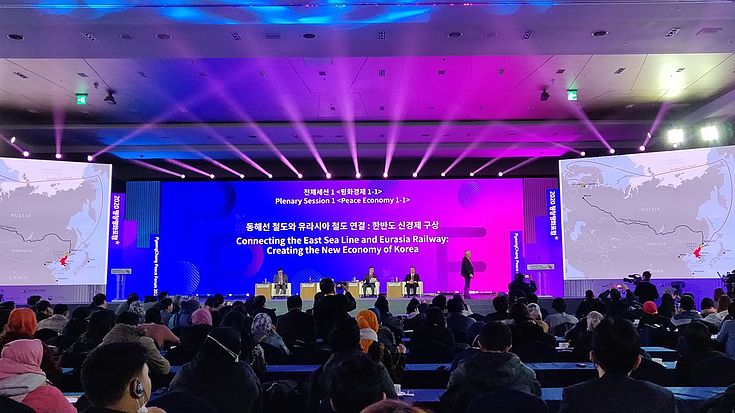
The forum focused on four main clusters: “Sport and Peace”, “Economy and Peace”, “Ecology and Peace” and “UN SDGs and Peace”. Each cluster included several events that brought together Korean and international speakers to discuss the heritage of the Olympic Games in these respective fields.
In sessions related to “Economy and Peace”, a focus was the virtuous circle between sustainable peace and economy, or as mentioned in one of the sessions, “how the economy can contribute to peace building”. Jim Rogers, Investment Expert and author, gave a presentation about the future of the Korean Peninsula in terms of economy and illustrated his opinion why “the Korean Peninsula will be soon the most exciting place in the world”.
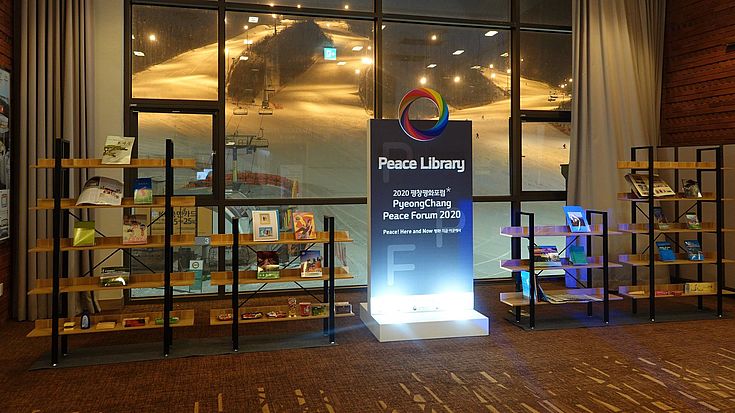
The cluster “Sport and Peace” included a session by the Pyeongchang Olympic Legacy and Sport & Tourism Development Initiative. Dr. Choi Hyun-Ah, senior researcher of HSF Korea contributed with her speech, introducing the project of HSF Korea to bring together North and South Koreans in third countries to exchange knowledge and discuss cooperation about less political topics, such as nature conservation, agriculture or sports.
The dialogue on “UN SDGs and Peace” focused on the Sustainable Development Goals and its meaning for peace on the Korean Peninsula, or as the President of the Korea International Cooperation Agency (KOICA), Lee Mi-Kyung, formulated it, “without peace there is no development, and without development there is no peace”.
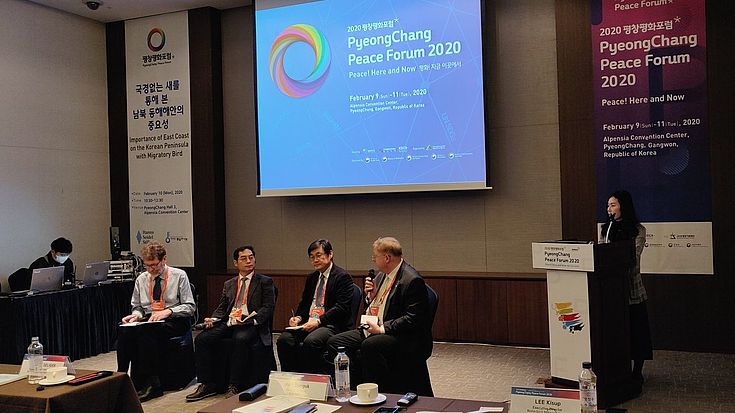
Lastly, within the topic “Ecology and Peace”, HSF Korea together with the support by the UniKorea Foundation organized a session on Migratory Birds on the Korean Peninsula and discussed with speakers from the East Asian – Australasian Flyway Partnership (EAAFP), Eco Korea and the Waterbird Network Korea about ways to engage North Korea into cooperation for nature conservation.
The welcome remarks by Jeon Byung-gil from UniKorea Foundation introduced the audience to the context of environment cooperation and the significance of environment conservation on the Korean Peninsula and beyond. Sustainable development goals were mentioned as an integrated concept to secure sustainable livelihoods and development as well as healthy ecosystems. Doug Watkins, chief executive of EAAFP, gave the first presentation about current cooperation projects with North Korea by international NGOs, such as the Pukorokoro Miranda Trust. He also introduced the importance of the Yellow Sea, bordered by China, North Korea and South Korea, for the conservation of migratory birds on the East Asian – Australasian Flyway.
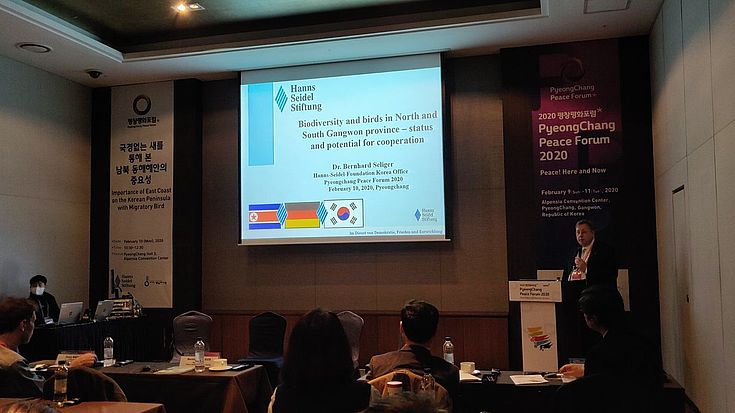
Dr. Han Donguk, director at ECO Korea then focused on the scientific aspects of birds on the Korean Peninsula. He mentioned the designated protected areas in Mundok and Rason and vulnerable species that occur in both Koreas. He also emphasized how birds can be used to raise awareness and mutual understanding among people of both sites on the Korean Peninsula as a natural connection. Dr. Bernhard Seliger, representative of HSF Korea, then gave a presentation on projects of HSF Korea in the border region and in North Korea. He also emphasized that while economic cooperation, e.g. on infrastructure is important, there have not been a single meeting on railways between South and North Korea in 2019, while HSF and partners organized such direct meetings more than 10 times in the same period. Lastly, Dr. Lee Kisup from the Waterbird Network Korea introduced the distribution of cranes in the inner-Korean border and the importance of the connection to habitats in North Korea.
